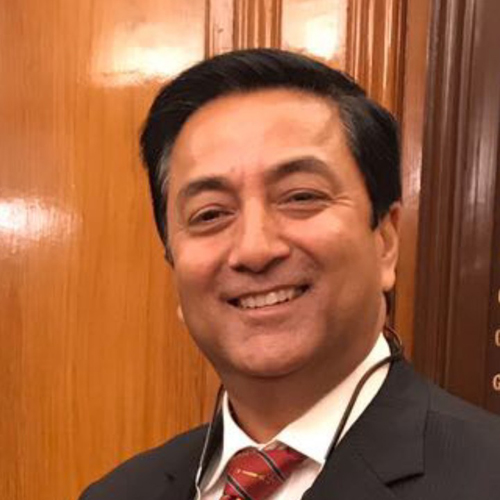Tue, Mar 3, 2026
Columns
Lack of strategic thinking
The constitutional mess in Nepal could lead to political and security dilemmas.
bookmark
Binoj Basnyat
Published at : February 9, 2021
Updated at : February 9, 2021 18:55
Nepal and Myanmar, two member states of the Bay of Bengal Initiative for Multi-Sectoral Technical and Economic Co-operation (BIMSTEC), recently witnessed political upheavals that could result in strategic political and security disorder. Prime Minister KP Oli dissolved the House of Representatives with two intentions: One, he was not capable of working in the new party’s environment, and two, the people voted for his leadership as head of government mainly due to the merger of two communist parties. Myanmar witnessed a return of the military as it was upset with the government of the National League of Democracy for agreeing to take back Rohingya refugees from Bangladesh, not supporting General Min Aung Hlaing's presidential bid, and attempting to amend the constitution that would trim the military's political clout.
In Nepal, the dissolution of Parliament has prompted intense political discontent and street protests even as the country is battling the novel coronavirus pandemic and the ruling Nepal Communist Party is on the verge of a split. India noted the proceedings, while the United States awaits the Supreme Court’s decision, and has underlined the continuation of American policy under the new Biden administration.
The reaction of democratic countries including India to the coup in Myanmar will be apprehensive, but the policy of non-interference in another state’s internal affairs and interests will balance principles, values and geopolitical realities. The US State Department has officially called the military takeover in Myanmar a coup and has threatened to impose sanctions. Foreign ministers from the G-7 group of nations condemned the coup. At an emergency meeting of the United Nations Security Council, China blocked a Security Council statement condemning the military coup.
The disturbances and agitation against the government, particularly by the Pushpa Kamal Dahal and Madhav Kumar Nepal led faction of the Nepal Communist Party, is bringing about four possible political and security narratives. Two of the narratives will depend on what the Supreme Court decides. The third narrative is the summoning of Parliament by the chairperson of the House of Representatives who belongs to the Dahal-Nepal faction. The last possible scenario is a declaration of emergency and presidential rule, the chances of which have diminished.
Whatever happens, Nepal has gotten into a strategic dilemma by inviting major powers for their legitimate concerns, and once again weakened public trust in the political parties and their leadership. It is true that Nepal has gone through major political changes, but the leadership remains the same. Nepal will witness political disorder and limited law and order. Limited meaning that the disorder will be confined to major cities with strategic impact.
There are six political and security challenges that the country will have to address while moving forward to an election. The political parties will pursue politics supporting ethnic lines. The likelihood of social collision based on religion and conversion to other practices will thrive. Non-state actors may engage in unwarranted activities like terrorism, both domestic and aimed against the immediate neighbours. The impact of the economic downturn caused by Covid-19 is another challenge. Further, the polarisation of political parties and further politicisation of left institutions will have to be faced. Lastly, the political knowledge of the population is a challenge.
The people generally view the administration as being politicised and corrupt. Politics takes precedence over governance. Financial assistance only benefits politicians in power and bureaucracy. In international relations, domestic nationalism overrides goodwill assistance from foreign friends. Regarding national security, it is more a law and order situation, and the sister organisations of political parties influence justice.
The only way forward is a fresh election, but the fundamental issue is administering the election that raises some questions. What will happen? Understanding and finding the root cause of political disturbances is necessary. How will it happen? The political parties will try to win by making lots of promises and spending a lot of money. Alliances of like-minded political parties will be formed with political manifestations. Who will administer it? There are three possibilities, one is the current government, which is least likely. The other is an all-party election government may be formed and, finally, a civilian-led politically supported election government is most likely, similar to the one the country witnessed during the second Constituent Assembly election. When will it take place? This election will only take place after a year following a political settlement.
The root cause of the predicament can be outlined as lack of strategic thinking in the policy community, which is predisposed to political orientation, alignment and association with slim chances of a Nepal Communist Party unification for the election. The knowledge that is required to adopt policy is missing, like the 12-point agreement to bring in the then Maoists to the democratic configuration without an exit strategy.
Most Read from Columns
Editor's Picks
Five and half decades of KP Oli in Nepali politics
How Facebook’s algorithm is amplifying one party over all others
Nepal’s IT exports near $1 billion. Can the momentum be sustained?
Parties’ lofty pledges on economy collide with hard realities
Upper house passes tourism bill with tougher Everest rules
E-PAPER | March 03, 2026
×




 20.53°C Kathmandu
20.53°C Kathmandu















